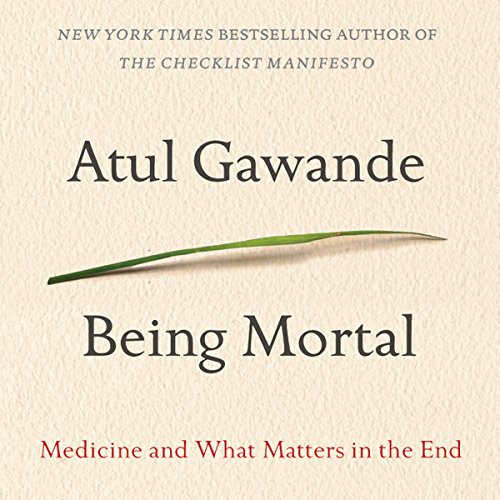
In Being Mortal, best-selling author Atul Gawande tackles the hardest challenge of his profession: How medicine can not only improve life but also the process of its ending.
Medicine has triumphed in modern times, transforming birth, injury, and infectious disease from harrowing to manageable. But in the inevitable condition of aging and death, the goals of medicine seem too frequently to run counter to the interest of the human spirit. Nursing homes, preoccupied with safety, pin patients into railed beds and wheelchairs. Hospitals isolate the dying, checking for vital signs long after the goals of cure have become moot. Doctors, committed to extending life, continue to carry out devastating procedures that in the end extend suffering.
Gawande, a practicing surgeon, addresses his profession’s ultimate limitation, arguing that quality of life is the desired goal for patients and families. Gawande offers examples of freer, more socially fulfilling models for assisting the infirm and dependent elderly, and he explores the varieties of hospice care to demonstrate that a person’s last weeks or months may be rich and dignified.
Full of eye-opening research and riveting storytelling, Being Mortal asserts that medicine can comfort and enhance our experience even to the end, providing not only a good life but also a good end.

“The End Matters” I became a fan of Atul Gawande upon reading his first book in 2002: Complications: A Surgeon’s Notes on an Imperfect Science. In reading many of his previous books I found he always asked questions: Why do we do things; for what purpose; is this working to achieve the best results for the patient in his physical and cultural circumstance? Gawande tackles the dilemmas of medical ethics by approaching them with sagacious common-sense. I think most of his books should be required reading in…
This book could be a game changer This book could be a game changer, if enough people read it and take it to heart. Atul Gawande addresses end-of-life care, and how we’re getting it wrong, both within the medical establishment and in our families.The major take-away for me is the author’s assertion that as a person nears the end of life, decisions about his or her living situation are primarily aimed at ensuring safety at the expense of autonomy, especially when adult children are in charge of the decision making…